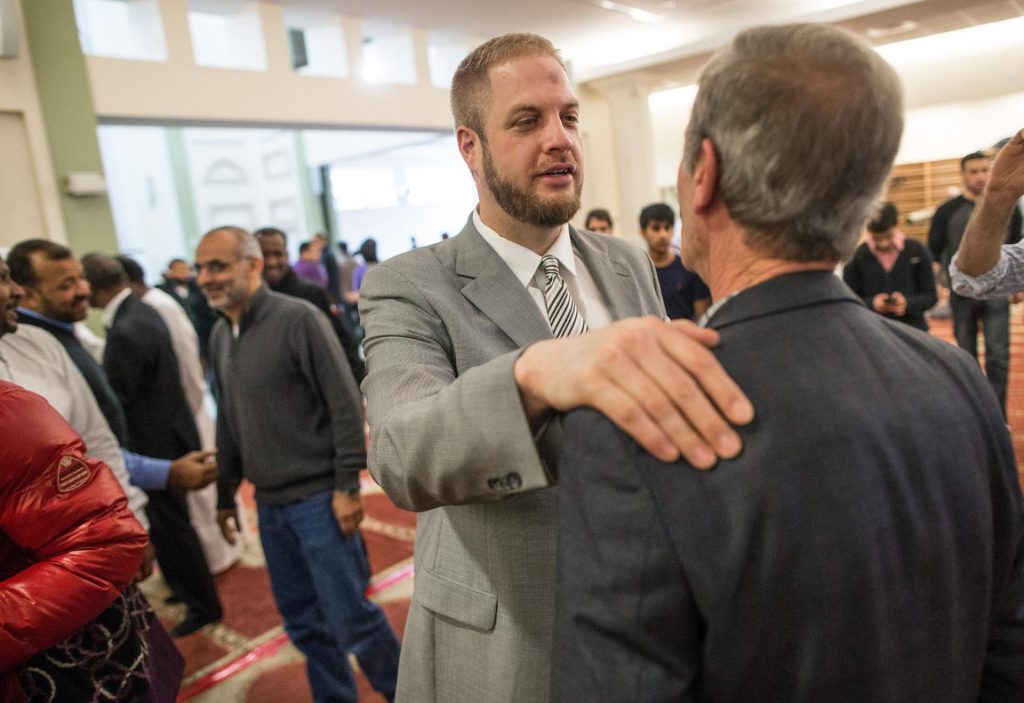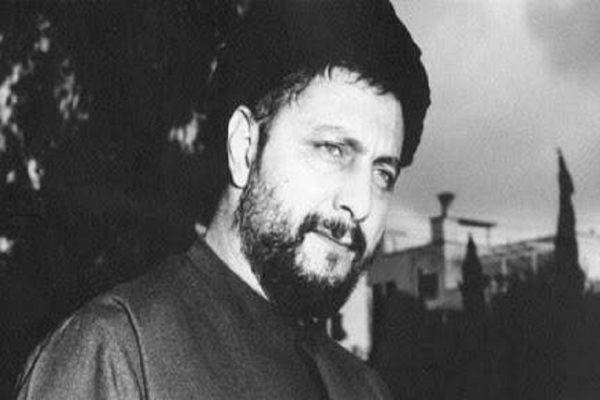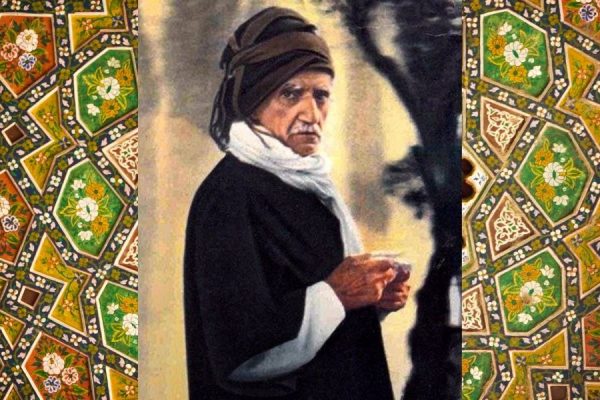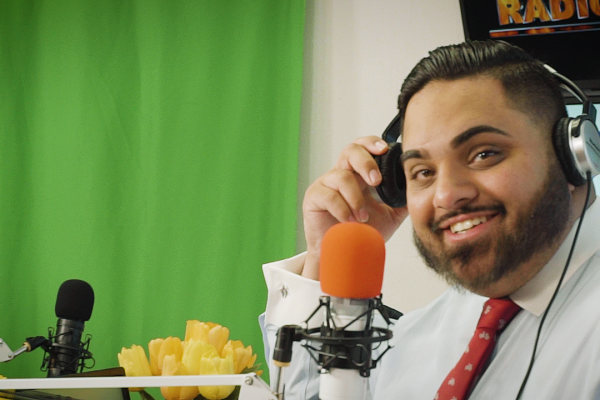It is said that Islam does not truly take hold in a place until that place begins to produce their own scholars. It is therefore imperative for American Muslims to take a serious look at the current issues within the Muslim-American community.
It is said that Islam does not truly take hold in a place until that place begins to produce their own scholars. It is therefore imperative for American Muslims to take a serious look at the current issues within the Muslim-American community.
It is said that Islam does not truly take hold in a place until that place begins to produce their own scholars. It is therefore imperative for American Muslims to take a serious look at the current issues within the Muslim-American community.
This article will be the first piece in a series about American Islamic leaders and organizations that are dedicated to fighting extremism in religion as well as Islamophobia. Most of the people in the series will have been American-born, however it is important to note that there are many foreign scholars who have also dedicated much of their time in helping Americans learn about Islam and prevent extremism within our mosques.
There is, unfortunately, a misconception that Muslims in America do not speak out against extremism and terrorism. We are constantly told that we must apologize for the actions of others and if we do not accept blame for others who follow a foreign ideology to us, that we must then be supporting them. This is both unfair and unrealistic.
Contrary to this, we do in fact speak out against extremism and violence. The fact that I am writing this now is proof of that. There are also many American scholars and organizations that are dedicated to stamping out extremism.
It is said that Islam does not truly take hold in a place until that place begins to produce their own scholars. It is therefore imperative for American Muslims to take a serious look at the current issues within the Muslim-American community, because there are cultural differences that someone from a place such as Saudi Arabia would just never understand. Some of these topics might include: how do we deal with non-Muslims who attack us; what is the Islamic position on gay marriage; or do we send our children to public schools or de we simply homeschool our children?
This leads me to introduce the first person in this series who may have some answers worth noting: Shaykh Suhaib Webb. Shaykh Suhaib is a personal friend of mine and one of my shaykhs. He was named one of the 500 Most Influential Muslims in the World by the Royal Islamic Strategic Studies Center in 2010 and his website was voted the best “Blog of the Year” by the 2009 Brass Crescent awards. Shaykh Suhaib Webb has also lectured extensively around the world including in the Middle East, East Asia, Europe, North Africa, and North America.
I first met Shaykh Suhaib Webb when he was working with the Muslim youth at the MCA SFBA mosque in Santa Clara. We immediately became friends due to our similar backgrounds. Suhaib was formerly a DJ who spun Hip Hop records in his hometown of Oklahoma City, and I was a producer for Black Market Records and was in charge of the marketing for their projects. He also had previous connections to the ‘hood’, and due to my connections in the music industry, I was involved in those elements as well in my past. Islam eventually helped protect us, and I still maintain to this day that if I did not become a Muslim I would probably have been killed or put in prison.
We are also both white and larger men, and I have on multiple occasions been confused for Shaykh Suhaib in the Bay Area. People really thought I was him, or that we were at least brothers.

Shaykh Suhaib became a Muslim when he was around 19 years old. After becoming Muslim he had intensive one-on-one studies with Muslim scholars and was then accepted into a program at Al-Azhar University which he attended from 2004-2010. His focus was on Islamic Sharia. When he completed his studies he then travelled to Mecca where he completed the memorization of the Qur’an, making him a Hafiz (protector) of the Qur’an. He has been granted numerous traditional teaching licenses (ijazat), adhering to a centuries-old Islamic scholarly practice of ensuring the highest standards of scholarship.
As a Muslim scholar, it is his responsibility to address the American Muslim community on contemporary Islamic topics. Some of these topics might be about good marital relations, speaking out against spousal abuse, keeping our youth from joining gangs, or speaking out against violence and terrorism.
The Los Angeles Times also wrote about him in 2011, saying that he was a rising star amongst American Muslims. Unfortunately, however, this newfound notoriety placed him in the crosshairs of the Islamophobic community because they do not want to see any American Muslim receive positive support. Shaykh Suhaib came under fire from Islamophobes such as Pamella Geller after the Boston Marathon Attacks, with them claiming a suspicious link between the fact that he had been recently made a resident scholar in Boston when the attacks occurred. Pamela Geller started making accusations that maybe he had said something to incite violence. This was obviously a completely false claim.
Even under intense scrutiny, however, Shaykh Suhaib ignored his detractors, and in true Islamic fashion prayed for them and wished nothing but good for them. He says he did this because our Prophet says to try and return a wrong action done to you with a good action.
The Islamophobic community is not the only community in which negative things were said to try and smear Shaykh Suhaib’s reputation. He has received a lot of negative comments coming from the extremist Takfiri community, who do not like Shayk Suhaib’s position on the unity between Muslims and non-Muslims. They claim he is a Sufi, and that because of that it somehow makes him illegitimate to lead Muslim communities.
Regardless of this, Shaykh Suhaib has been named one of the most approachable Imams in North America. He has a passion to spread the truth about real Islam. He is very sincere and his emotions can be felt amongst the people listening in attendance. I will never forget the time when he was leading a Friday Jummah prayer at MCA SFBA and during the prayer he started crying, which caused all 2,000 plus in attendance that were praying with him to start crying as well.
If anyone wants to listen to a real and knowledgeable Islamic scholar who is opposed to terrorism and will tell the truth about what Islam really teaches, then please start off by even doing a simple Youtube search for Shaykh Suhaib. I promise that you will not be disappointed.
May Allah (swt) continue to guide him and all of humanity, Ameen.





